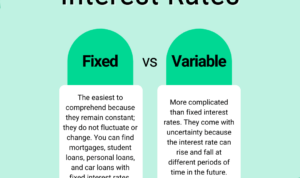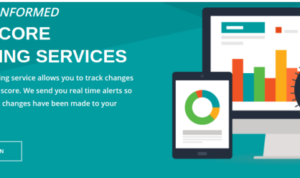When it comes to personal finance tips, it’s all about setting yourself up for a successful financial future. From budgeting strategies to saving and investing wisely, these tips can make a significant impact on your overall financial health. Let’s dive into the world of personal finance and discover how these tips can help you achieve long-term stability and reduce financial stress.
Importance of Personal Finance Tips
Personal finance tips are crucial for financial well-being as they provide guidance on managing money effectively, budgeting wisely, and making informed financial decisions. By following personal finance tips, individuals can achieve long-term financial stability and security for themselves and their families.
Impact on Financial Stability
- Setting financial goals and creating a budget can help individuals track their spending and prioritize saving for important expenses like emergencies, retirement, or education.
- Investing wisely and diversifying assets based on personal risk tolerance can help build wealth over time and protect against market fluctuations.
- Avoiding debt traps and managing debt responsibly through strategies like debt snowball or avalanche can prevent financial strain and improve credit scores.
Reducing Financial Stress
- Having a clear financial plan and emergency fund can provide peace of mind during unexpected situations like job loss, medical emergencies, or major expenses.
- Understanding personal finance concepts and staying informed about financial trends can empower individuals to make confident decisions and avoid common pitfalls.
- Seeking professional advice or attending financial literacy workshops can improve financial literacy and help individuals navigate complex financial situations with ease.
Budgeting Strategies
Budgeting is a crucial aspect of personal finance that helps individuals manage their money effectively. By setting up a budget, you can track your expenses, prioritize your spending, and work towards achieving your financial goals.
Traditional Budgeting vs Zero-Based Budgeting
Traditional budgeting involves allocating specific amounts to various expense categories based on past spending habits. This method provides a general guideline for managing your money but may not be as flexible or detailed.
On the other hand, zero-based budgeting requires assigning every dollar of your income a specific purpose, whether it’s for expenses, savings, or investments. This method ensures that every cent is accounted for and helps you make intentional decisions with your money.
Importance of Tracking Expenses and Creating a Budget Based on Income
Tracking expenses is essential to understand where your money is going and identify areas where you can cut back or optimize your spending. By creating a budget based on your income, you can ensure that you’re living within your means and saving for your future.
Saving and Investing
Saving a percentage of income is crucial for achieving future financial goals. By setting aside money regularly, individuals can build emergency funds, save for major purchases, or invest for retirement. This disciplined approach helps in achieving financial stability and security.
Investment Options
- Stocks: Investing in individual stocks allows for potential high returns but comes with higher risk.
- Bonds: Bonds are fixed-income securities that provide steady returns but with lower risk compared to stocks.
- Real Estate: Real estate investments involve buying properties to generate rental income or appreciate in value over time.
- Retirement Accounts: Accounts like 401(k) or IRA offer tax advantages and long-term growth potential for retirement savings.
It’s important to diversify your investment portfolio to spread risk and optimize returns.
Getting Started with Investing
- Start by setting clear investment goals and determining your risk tolerance.
- Research different investment options and consider seeking advice from financial advisors.
- Open an investment account and begin investing regularly to benefit from compounding returns.
- Monitor your investments regularly and make adjustments based on changing financial goals or market conditions.
Debt Management
Debt management is a crucial aspect of personal finance that can significantly impact your financial health. By implementing effective strategies, you can pay off debt efficiently and work towards achieving financial freedom.
Snowball and Avalanche Methods
- The snowball method involves paying off your smallest debts first while making minimum payments on larger debts. Once the smallest debt is paid off, you move on to the next smallest debt, creating momentum like a snowball rolling downhill.
- The avalanche method, on the other hand, focuses on paying off debts with the highest interest rates first. By tackling high-interest debt first, you can save money on interest payments in the long run.
Impact of High-Interest Debt
- High-interest debt can significantly drain your finances, making it harder to achieve your financial goals. It can lead to a cycle of debt that is difficult to break free from.
- To reduce high-interest debt, consider transferring balances to lower interest rate credit cards, consolidating debts, or negotiating with creditors for lower interest rates.
Negotiating with Creditors and Debt Repayment Plan
- When negotiating with creditors, be honest about your financial situation and explain your willingness to repay the debt. You can request lower interest rates, extended payment terms, or even settle for a lower amount.
- Creating a debt repayment plan involves listing all your debts, prioritizing them based on interest rates or amounts owed, and allocating a certain amount of your income towards debt repayment each month.
Emergency Funds and Insurance
Having an emergency fund is crucial for unexpected expenses that may arise, such as medical emergencies, car repairs, or sudden job loss. It acts as a safety net to help you cover these unforeseen costs without having to dip into your savings or go into debt.
Types of Insurance
- Health Insurance: Provides coverage for medical expenses, including doctor visits, prescriptions, and hospital stays.
- Life Insurance: Ensures financial protection for your loved ones in the event of your death, providing them with a lump sum payment.
- Property Insurance: Protects your home, belongings, and other assets against damage or loss from events like fires, theft, or natural disasters.
Building an Emergency Fund and Choosing Insurance Coverage
- Set a savings goal: Aim to save at least 3-6 months’ worth of living expenses in your emergency fund.
- Automate savings: Set up automatic transfers from your checking account to your emergency fund to make saving easier.
- Review insurance policies: Regularly assess your insurance coverage to ensure it aligns with your current needs and lifestyle changes.
- Compare quotes: Shop around for insurance policies to find the best coverage at the most competitive rates.
Financial Goals Setting

Setting financial goals is crucial for personal finance planning. By establishing SMART goals, individuals can effectively manage their money and work towards achieving their desired financial outcomes.
Importance of Setting SMART Financial Goals
Setting SMART financial goals ensures that objectives are Specific, Measurable, Achievable, Relevant, and Time-bound. This framework helps individuals clarify what they want to achieve, create a plan to reach those goals, and track their progress along the way.
Short-term and Long-term Financial Goals
Short-term financial goals are typically achievable within a year, such as building an emergency fund or paying off credit card debt. Long-term goals, on the other hand, may take several years to accomplish, like saving for retirement or purchasing a home.
Tips for Prioritizing and Tracking Financial Goals
- Identify your most important financial goals based on your current financial situation and future aspirations.
- Break down larger goals into smaller, manageable steps to stay motivated and on track.
- Regularly review and adjust your goals as needed to adapt to changing circumstances or priorities.
- Track your progress using tools like spreadsheets, budgeting apps, or financial planners to monitor your success and make necessary adjustments.






